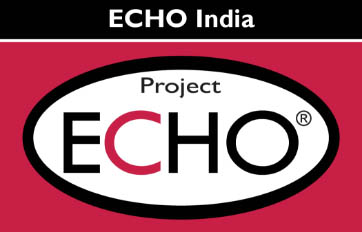“We are the first generation to feel the impact of climate change and the last generation that can do something about it.” — Barack Obama
Climate change is no longer a distant threat, it’s a daily reality for millions. With over 3.6 billion people living in highly climate-vulnerable areas, the urgency for awareness and action has never been greater. Environmental education is a powerful tool to drive this change, but its effectiveness depends not just on the content of interventions, but on how well they are implemented at the grassroots.
This is where ECHO model of guided, collaborative learning has proven transformative. And in Andhra Pradesh, it found the perfect partner in Mr. P. Neelkantaiah, the State Coordinator for the Andhra Pradesh National Green Corps (APNGC).
A veteran environmental educator working under the Department of Environment, Forest Science, and Technology, Mr. Neelkantaiah had long been committed to embedding environmental awareness into the fabric of rural education. However, he understood that meaningful change required more than good intentions, it needed the right platform, one that could connect, equip, and empower teachers with relevant skills and peer support.
 Mr. Neelkantaiah leads a community clean-up drive, promoting action through example.
Mr. Neelkantaiah leads a community clean-up drive, promoting action through example.
In 2021, amidst the disruptions of the COVID-19 pandemic, he came across the ECHO Model of capacity building. What began as a timely solution soon became a cornerstone of a larger movement. The strength of the ECHO **All Teach All Learn Model lies in its human networks, bringing together educators, experts, and practitioners in regular virtual knowledge-sharing sessions. These communities of practice create a safe, collaborative space where teachers learn, adapt, and innovate in their local contexts.
 Mr. Neelkantaiah at the ECHO India partner launch event, marking the start of a collaborative training initiative.
Mr. Neelkantaiah at the ECHO India partner launch event, marking the start of a collaborative training initiative.
Under Mr. Neelkantaiah’s stewardship, the APNGC–ECHO program flourished in districts like Chittoor. The focus was not just on theoretical training but on hands-on, practical environmental education. Students were encouraged to document butterflies and bees in their surroundings—activities that were simple, yet sparked curiosity, responsibility, and a deep connection with nature.
 Mr. Neelkantaiah with APNGC volunteers and Forest Department officials on World Environment Day 2023 in Tirupati.
Mr. Neelkantaiah with APNGC volunteers and Forest Department officials on World Environment Day 2023 in Tirupati.
What made the ECHO intervention truly effective was its context-sensitive approach. Teachers were not burdened with abstract theories and ideas; instead, they received actionable, relevant knowledge that could be easily adapted to their school environments. Environmental education was no longer a standalone topic but was seamlessly integrated into daily teaching—thanks to the examples, mentorship, and peer learning that is built into the ECHO sessions.
 Students and teachers participate in a tree plantation activity, promoting green habits on campus.
Students and teachers participate in a tree plantation activity, promoting green habits on campus.
The Green Schools initiative, supported by both APNGC and ECHO India, saw participating schools conduct environmental audits and adopt sustainable practices. But the deeper impact went beyond data points. There was a visible shift in mindset: teachers took ownership, students became advocates, and communities began to care.
The ripple effect was unmissable. From one teacher’s vision to dozens of inspired educators and hundreds of engaged students, the movement grew organically. And at the heart of this transformation was the ECHO model of training, as an enabler of collective learning and implementation.
 Participants gather for the Pilot APNGC-ECHO Meet & Greet, celebrating collaboration and peer learning.
Participants gather for the Pilot APNGC-ECHO Meet & Greet, celebrating collaboration and peer learning.
Mr. Neelkantaiah’s journey underscores a vital insight: effective interventions need effective systems of implementation. ECHO India didn’t impose a one-size-fits-all solution. Instead, it provided a scalable, human-centric model that empowered local actors to lead change on their terms.
Today, teachers in Chittoor and beyond are not just delivering lessons, they’re building a culture of sustainability. Their classrooms have become spaces of curiosity and action. And their students are learning not only about environmental problems but also how to be part of the solution.
Change doesn’t always begin with sweeping policies or large-scale funding. Sometimes, it starts with a single committed individual, a strong platform, and a collective willingness to learn and grow. The partnership between APNGC and ECHO India demonstrates that the success of any intervention lies not just in its intent but in its implementation ecosystem.
Through ECHO India’s virtual knowledge-sharing model, environmental education became more than a subject, it became a movement, grounded in local realities and powered by peer learning. Mr. Neelkantaiah’s vision found strength in ECHO’s structured support, enabling teachers to translate ideas into action and classrooms into catalysts for change.
 APNGC student volunteers take part in a campus clean-up, learning the value of collective environmental action.
APNGC student volunteers take part in a campus clean-up, learning the value of collective environmental action.
This is the true power of a well-designed intervention: when educators are connected, supported, and empowered, they don’t just implement change, they multiply it. And in the face of climate urgency, that kind of collective, scalable impact is exactly what the world needs.
